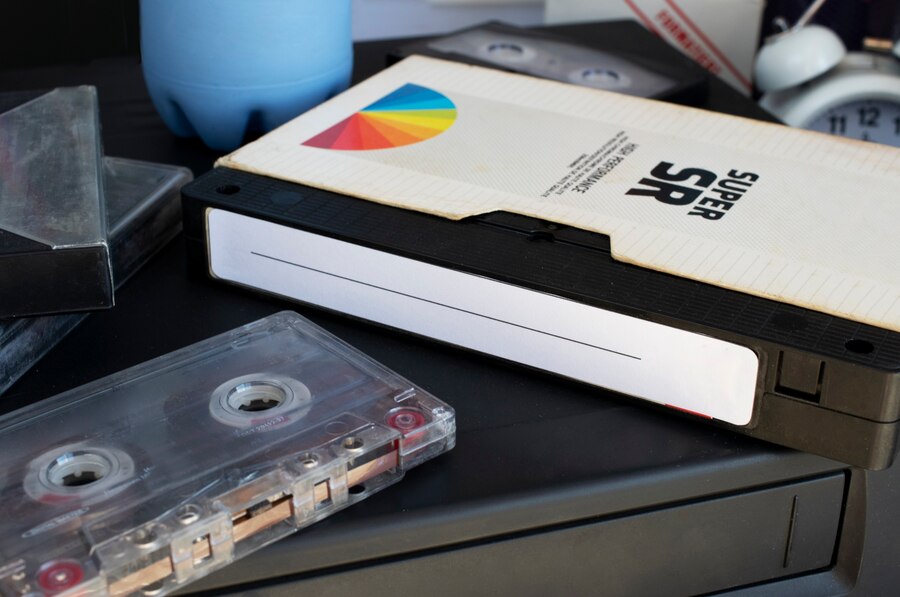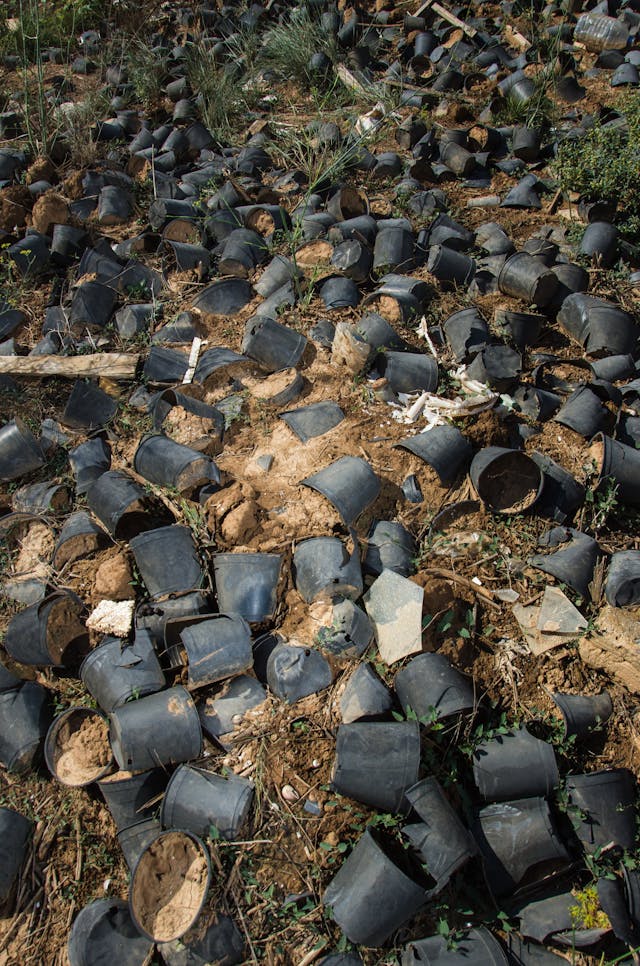Remember those Friday nights when we’d pop a VHS tape into the VCR or listen to our favourite mixtape on a cassette player? It feels like a distant memory now. With streaming services and digital playlists taking over, VHS tapes and cassette tapes have become relics of the past, collecting dust in attics and basements across the globe.
The question is: What do you do with these old tapes now that technology has moved on? Throwing them in the trash isn’t ideal—they’re made from plastic and magnetic materials that can harm the environment. Recycling or repurposing them is the responsible way forward.
This guide will walk you through practical steps to recycle VHS and cassette tapes responsibly. Along the way, I’ll share real-world experiences, expert insights, and actionable tips to help you make environmentally conscious choices. Whether you’re looking to declutter your space, protect the environment, or simply learn more about sustainable living, this is the place to start.

The Environmental Impact of VHS and Cassette Tapes
Before diving into recycling methods, it’s important to understand why proper disposal of VHS and cassette tapes matters. These nostalgic pieces from the past may seem harmless, but they are made from materials that pose serious environmental challenges.
Let’s break it down:
- Plastic (polypropylene): This tough material makes up the majority of a VHS or cassette tape and can take hundreds of years to decompose in landfills. In the meantime, it contributes to the growing plastic pollution crisis.
- Magnetic tape (mylar): The thin, shiny film inside these tapes is coated with metals. When improperly discarded, these chemicals can leach into soil and water, potentially causing harm to ecosystems.
- Other components: Tapes often include small metal parts, adhesives, and labels. While some of these components are recyclable, they are often overlooked due to the difficulty of separating them.
A startling statistic from the Environmental Protection Agency (EPA) reveals that the U.S. generated over 35 million tons of plastic waste in 2020, but only 9% of it was recycled. VHS and cassette tapes add to this problem when they are improperly discarded or left to languish in storage indefinitely.
Material Composition of VHS and Cassette Tapes
| Material Type | Percentage Composition | Environmental Impact |
|---|---|---|
| Plastic | 60% | Non-biodegradable |
| Magnetic Tape | 30% | Potential chemical leachate |
| Metal Components | 10% | Recyclable but often overlooked |
My Personal Experience with VHS tapes and cassette tapes
A few years ago, while helping my parents clean out their attic, I stumbled upon a dusty box filled with VHS tapes and cassette tapes. It was like opening a time capsule—old home videos, mix tapes from my teenage years, and even classic movies I had long forgotten. Nostalgia hit me hard, but reality quickly set in: what was I supposed to do with all these tapes?
Throwing them in the trash felt wrong. I knew they contained plastic and chemicals that wouldn’t break down easily. So, I started researching sustainable ways to dispose of them. I learned that traditional recycling centres often don’t accept them, but specialized companies like GreenDisk and TerraCycle do. Some thrift stores and collectors were even interested in certain rare tapes.
I also discovered creative upcycling ideas—turning cassette tapes into wallets or VHS tapes into storage boxes. Inspired, I donated what I could, recycled the rest responsibly, and even kept a few for a DIY project. That experience changed how I viewed “junk.” What we consider trash can often be repurposed or recycled, reducing waste and preserving memories in a meaningful way.
Learn More: How to Recycle Floppy Disks
Assessing and Recycling VHS and Cassette Tapes: A Step-by-Step Guide
Step 1: Assess What You Have
Before you decide how to recycle your VHS and cassette tapes, take a moment to go through your collection. It’s easy to want to toss everything in a box and get rid of it, but some tapes might hold more value than you realize.
Sort by Sentimental Value
Ask yourself: Are there home videos, recordings of special occasions, or rare tapes that hold personal significance? If so, you might want to consider preserving them digitally before parting ways. There’s something special about those old memories, and once they’re gone, they’re gone forever.
Tip: Digitizing valuable content is a great way to keep your memories safe. Companies like Legacybox and iMemories offer professional digitization services, making it easy to convert old tapes into digital files that can be stored on a computer or the cloud.
Check for Rarity
Believe it or not, some VHS and cassette tapes are actually collectable. Limited edition movies, old concert recordings, and rare albums can have value to collectors. Before you recycle, do a quick online search to see if any of your tapes are worth selling. Websites like eBay and Discogs can help you gauge the market value of your tapes.
Inspect for Damage
If your tapes have been sitting in a damp attic or basement, they might have developed mould or physical damage. Moldy tapes can be a health hazard, so you’ll need to be careful when handling them. If they’re beyond saving, you’ll need to dispose of them properly to avoid environmental harm.
Step 2: Explore Recycling Options
Once you’ve sorted through your collection and decided which tapes to keep, it’s time to figure out how to recycle the rest. VHS and cassette tapes contain both plastic and magnetic tape, making them tricky to recycle through standard curbside programs.
1. E-Waste Recycling Centers
Many electronic waste recycling centres accept VHS and cassette tapes. These facilities have the necessary equipment to break down the materials and recycle them properly.
Expert Quote:
Megan O’Connor: Founder of Nth Cycle, a company specializing in sustainable extraction and refining of critical minerals from electronic waste, suggests that, “E-waste recycling centers are equipped to handle complex materials found in media tapes. Always check with your local center to confirm they accept tapes.”
2. Mail-In Recycling Programs
If you don’t have a recycling centre nearby, don’t worry! Companies like GreenDisk and TerraCycle offer mail-in recycling programs for VHS and cassette tapes. These services allow you to pack up your unwanted tapes and ship them to a facility that will handle them responsibly.
3. Creative Upcycling Projects
If you’re the crafty type, you might consider upcycling your old tapes into something new. With a little creativity, VHS and cassette tapes can be transformed into functional and decorative items.
Here are some ideas:
- VHS case storage boxes – Use plastic shells to store small items like cables, jewellery, or office supplies.
- Cassette tape wallets – Turn an old cassette into a quirky and unique wallet.
- Decorative wall art – Some artists repurpose magnetic tape to create intricate woven designs.
DIY Tip: Before repurposing your tapes, remove the magnetic tape to prevent exposure to harmful chemicals.
Step 3: Safe Disposal Tips
If you’ve exhausted all recycling and upcycling options and still need to dispose of some tapes, follow these guidelines to do so safely:
Remove the Magnetic Tape
The plastic shells of VHS and cassette tapes can sometimes be recycled separately. Carefully open the tapes and remove the magnetic tape inside. This will reduce the risk of chemicals leaching into the environment.
Recycle the Plastic Components
Check with your local recycling program to see if they accept hard plastics. Some facilities may allow you to recycle the outer casing separately from the magnetic tape.
Dispose of Hazardous Materials Properly
If your tapes are mouldy or severely damaged, handle them with care. Mold spores can be harmful if inhaled, so consider wearing gloves and a mask when dealing with contaminated tapes. Contact your local waste management service for guidance on safe disposal methods.
The Future of Media Tape Recycling
Innovations in recycling technology are enhancing our ability to manage complex materials, including media tapes. Researchers at the University of Michigan are exploring advanced chemical processes to break down Mylar, a component in many media tapes, into reusable materials. This approach aims to transform waste from outdated media formats into valuable resources, reducing landfill clutter.
Advancements in sorting technologies are also playing a crucial role. For instance, researchers at the Massachusetts Institute of Technology (MIT) have developed “RoCycle,” a system that uses a soft Teflon hand equipped with tactile sensors to detect an object’s size and stiffness. This technology enables the robot to identify and sort materials such as paper, plastic, and metal, thereby improving the efficiency of recycling processes.
Similarly, a team at Worcester Polytechnic Institute is leading a project to develop robotics technology for recycling centres. The goal is to create systems that can assist in sorting waste more efficiently, improving conditions for workers and enhancing the overall recycling process.
These innovations have the potential to revolutionize the recycling industry by enabling more efficient handling of complex materials, ultimately benefiting both the industry and the environment.
Recycling Innovations in the Media Industry
Recycling Innovations in the Media Industry
| Innovation | Description | Environmental Benefit |
|---|---|---|
| Chemical Breakdown | Converts Mylar into reusable materials | Reduces landfill waste |
| Advanced Sorting Machines | Efficiently separates tape components | Increases recycling rates |
| AI-Driven Robotics | Automates disassembly and material recovery | Minimizes contamination & enhances efficiency |
Learn More: Can Ink Cartridges Be Recycled?
Actionable Advice: What You Can Do Today
1. Inventory Your Tapes
Start by sorting through your collection. Ask yourself: Which tapes have sentimental value, and which can be let go? If there are home videos or meaningful audio recordings, consider digitizing them so you can preserve those memories for the future.
2. Research Local Recycling Options
Not all recycling centres accept VHS and cassette tapes because of their mixed materials. However, many e-waste facilities do. Reach out to your local waste management service or search online for specialized recycling programs like GreenDisk. Some mail-in services make it super convenient if local options are limited.
3. Spread the Word
Many people aren’t aware that media tapes can be recycled. Share what you’ve learned with friends, family, and even community groups. Post your efforts on social media to inspire others.
4. Advocate for Better Recycling Programs
Support initiatives that push for improved recycling infrastructure. Sign petitions, contact local representatives, and stay informed about environmental legislation. Every voice counts.
Personal Challenge
Here’s a simple challenge to get you started: Declutter your home by responsibly recycling at least five media tapes this month. Take a photo of your progress and share it on social media using #RecycleMediaTapes. Let’s turn this into a community effort where we celebrate each step toward a cleaner planet.
Remember, your actions matter. By tackling this often-overlooked part of household waste, you’re helping reduce plastic pollution and promoting a culture of environmental responsibility. Let’s make it happen together!
Conclusion
Recycling VHS tapes and cassette tapes may seem daunting, but with the right information and resources, it’s entirely achievable. By taking these steps, you’ll not only declutter your home but also contribute to a healthier planet.
As I reflect on my journey from discovering that dusty box of tapes to responsibly recycling them, I feel a sense of accomplishment knowing I made a positive impact. And now, it’s your turn—let’s make recycling these media relics a part of our collective effort toward sustainability.







